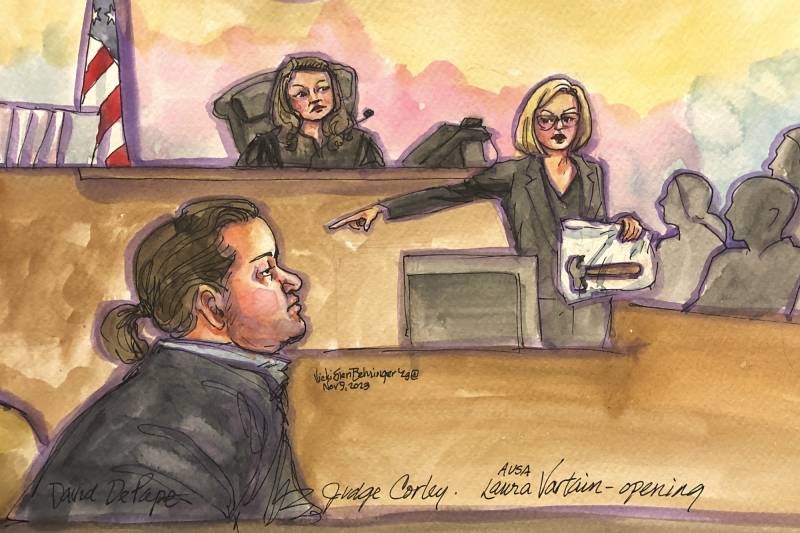San Francisco prosecutors have added charges on the eve of trial that increase the severity of a potential state-prison sentence for the man who violently attacked former U.S. House speaker Nancy Pelosi’s husband with a hammer, as local public defenders argue that several charges against David DePape should be dismissed because they illegally repeat a federal prosecution concluded late last year.
DePape was sentenced last week to 30 years in federal prison following his November conviction of attempting to kidnap Nancy Pelosi and violently assaulting her husband, Paul Pelosi, during a politically-motivated, late-night break-in at the couple’s San Francisco home in late 2022. The two charges in federal court relied on DePape’s targeting of Nancy Pelosi because of her official position as a U.S. representative.
However, a court error at his federal sentencing hearing has called that 30-year prison term into question and added disorder to the already complex dual prosecution on both federal and state-level charges.
A second trial — this one in state court — is set to open next week. DePape faces multiple charges, including attempted murder, first-degree burglary, assault with a deadly weapon, seriously injuring an elderly adult, false imprisonment and threatening a public official’s family member.
Prosecutors recently added two new charges. One of them, aggravated kidnapping resulting in bodily harm or death, carries with it a life sentence without the possibility of parole. The other adds one count of preventing or dissuading a witness by force or threat. DePape has pleaded not guilty to all charges.

